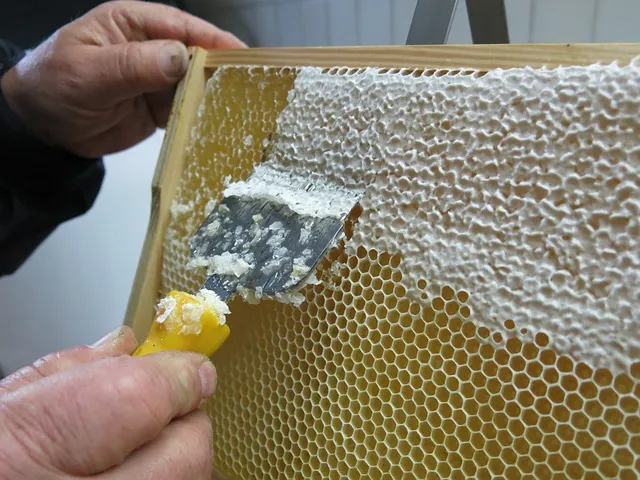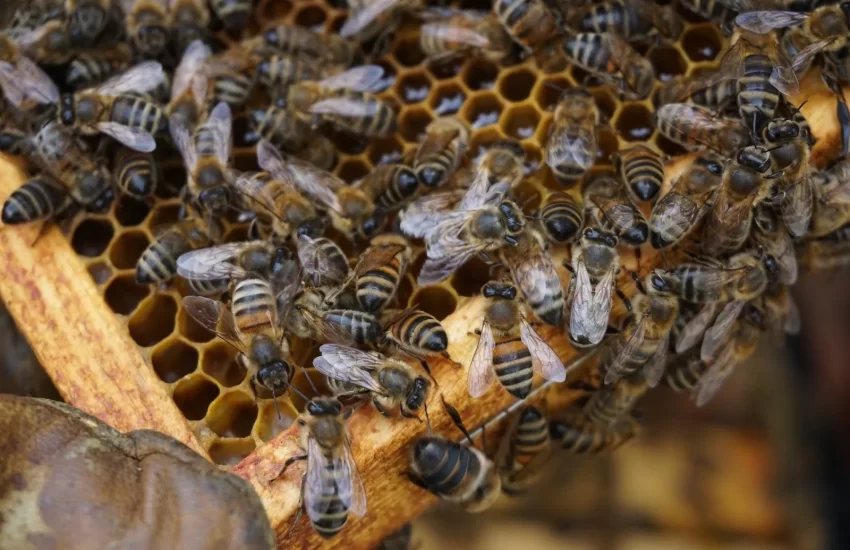Does harvesting honey hurt bees?
Honey harvesting by beekeepers is one of those hot topics among bee lovers and vegans. In fact, vegans don’t consume honey. For beekeepers, this is a priceless reward. Not only is honey sweet, but it contains many nutrients and antioxidants that benefit our health. A perfect remedy for colds, flu, allergies, and many other ailments. However, we should not enjoy honey at the expense of bee health.
Similar Articles you may like to read –
How do you store honey after harvesting?
Can you harvest honey from brood box?
Can you harvest honey that is not capped?
What is the best time of day to harvest honey from a beehive?
Does harvesting honey hurt bees?
Taking honey in a responsible way does not hurt bees, nor does it destroy colonies. A honeycomb is different from an entire hive. It is good to note that most bees make more honey than they require, which they store in the hive. They consume the honey stores in winter when they can’t forage. Colonies with insufficient honey stores do not survive in winter. A strong and healthy colony mostly makes more honey than they require for winter. Beekeepers harvest some and leave sufficient stores for bees to use in winter.
They only take the surplus honey. The harvesting process should not result in dead bees either. A beekeeper should be careful not to crush or injure the bees. Unfortunately, some people exploit bees for higher profits. For instance, they harvest all the honey and feed the bees sugar syrup in winter. Such a practice is cruel and unethical.
Can you keep bees and don’t harvest honey?
Yes, it is possible to keep bees and not harvest honey. Honey left in the hive does not spoil and usually remains good for years. However, you should brace yourself for challenges that arise in the warm season. Since bees are great hard workers, they will fill every available space in the hive with honey, and the queen will run out of space to lay eggs. They will not be able to raise other bees.
The colony will also become overcrowded. In such a scenario, the colony began to make preparations for swarming. In no time, half of the colony will leave with the old queen to look for a new place to live. While swarming is not necessarily a bad issue, a beekeeper will have lost part of the colony. A beekeeper can consider splitting the hive once the colony runs out of space to keep them from swarming. If a colony fails to swarm and no splitting is done, they will not be able to raise new bees since honey will take the space in combs designated to raise a new brood. Such a colony will decrease in number and strength.
More articles you may like to read –
How can I get honey without smoking it?
Can I take honey from a first year hive?
How much honey does 1 hive produce per year?
Should I filter my honey?
Why do bees make extra honey? Isn’t it a waste of energy?
Honey bees are hard workers. They will always make honey as long as there is available nectar, a place to store it, and conducive weather. The best thing about honey is that it does not spoil. They want to store as much honey as they can for winter and seasons of scarcity. The truth is honey takes a lot of effort to produce. No wonder foragers born in spring and summer live only for a few weeks.




